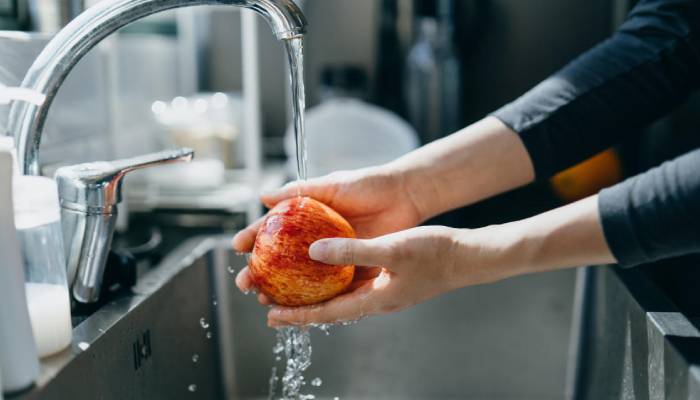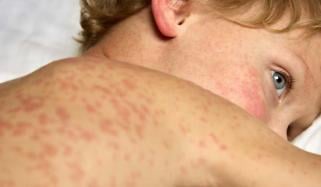
Washing your fruit isn’t enough to consider it safe to eat, suggests a new study!
In groundbreaking research published in the American Chemical Society’s journal Nano Letters, it is exposed that simply cleaning your fruits with water does not help remove the pesticides present on them.
Utilizing advanced Raman imaging to study the effects of pesticides on apples, the scientists have discovered “distribution of pesticides in the apple peel and pulp layers, confirming that the pesticides penetrate the peel layer into the pulp layer.”
“Thus, the risk of pesticide ingestion from fruits cannot be avoided by simple washing other than peeling,” the publication states.
The researchers behind the study emphasize that their aim is not to frighten the consumers but rather to educate them about the practices for minimizing pesticide exposure in food.
“This study, situated within the expansive realm of food safety, endeavors to furnish health guidance to consumers,” said Dongdong Ye, a professor with China’s School of Materials and Chemistry at Anhui Agricultural University and an author of the paper, reported the Guardian.
“Rather than fostering undue apprehension, the research posits that peeling can effectively eliminate nearly all pesticide residues, contrasted with the frequently recommended practice of washing,” he suggested.
As suggested by the report, peeling the fruits can be an effective method to minimize pesticide exposure as the pulp layer is removed during the process and is significantly thicker than 30 μm, which has been confirmed by ultradepth-of-field microscopy, indicating that removing the peel decreases the risk of ingesting these chemicals, which are mainly present on the outer layer of the fruit.















